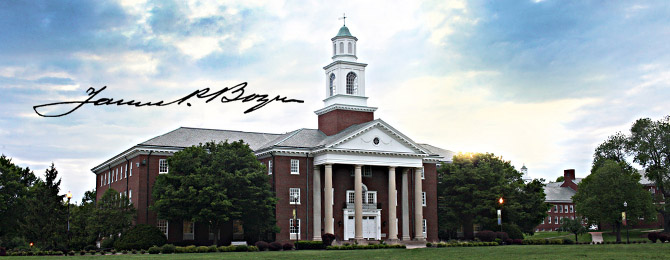Availability of Your Electronic Dissertation
I’ve Submitted, Now What?
After you have submitted your electronic thesis/dissertation/project and the Graduate School has approved it, it will be available as follows:
- The full text will be openly available in the Boyce Digital Repository, at a unique, permanent URL
- A description of the dissertation/thesis/project will appear in the library catalog, with a link to the text in Boyce Digital Repository.
- Your thesis/dissertation/project will be indexed and available through search engines (such as Google)
Open access to your thesis/dissertation as described above does not affect your copyright or ownership of the content of your thesis/dissertation/project.
While open access is the default, you will be offered several options for restricting access (referred to as an embargo) when submitting your thesis/dissertation/project through ProQuest. These same embargoes will be applied to the copy made available through the Boyce Digital Repository. Embargo options should be discussed with your advisor, and both the advisor and the thesis/dissertation author must sign the availability options section of the Nonexclusive Distribution License (pdf).
Options for Restricting Access to an ETD (Embargo)
There are situations in which you should consider restricting access to your work. SBTS offers three embargo options: six months, one year, and two years. These options are available when you are uploading your pdf to ProQuest (done online here.) The embargo period begins from the date the Graduate School approves your thesis/dissertation and then lasts for the selected time period. If you select an embargo, your thesis/dissertation will not be available through the Boyce Digital Repository, although information about it will be listed in the Library catalog and exposed to internet search engines prior to the end of the embargo. Also, the hard copy of your dissertation will be available to on-campus researchers at SBTS. After the embargo period, your electronic dissertation/thesis/project will become available in the manner described above.
If you are planning to publish all or part of your thesis/dissertation/project and know that publishers in your field consider open access electronic thesis/dissertations/project to be a prior publication, you may want to consider an embargo or check on their open access policy before submitting your thesis/dissertation/project. For more information, see Publishing Concerns.
Paper copies
While the official seminary copy kept by the Library is your electronic copy, you still have several options if you, family members, or your advisor would like a paper copy:
- You can order a bound copy (paper or hardback) through ProQuest
- You can take a paper copy to Fifth and Broadway, where it can be bound with a glue binding binding
- You can have a local copy center bind it for you (Kinko’s, Staples, etc.)
The content on this page was adapted with the permission of the Duke University Graduate School.
